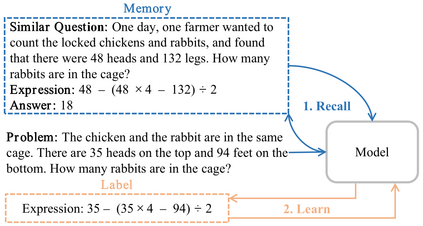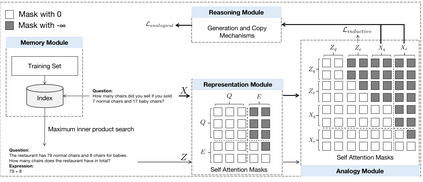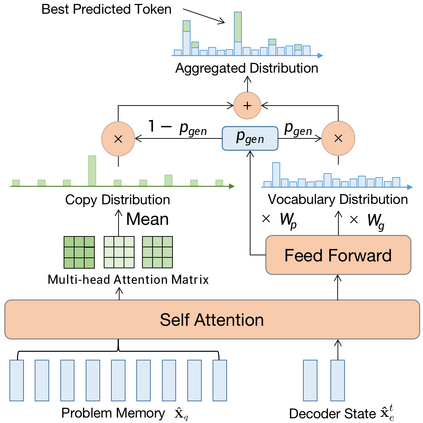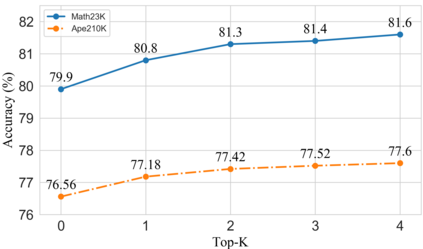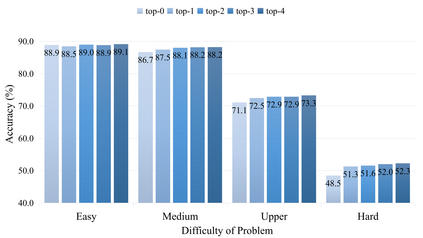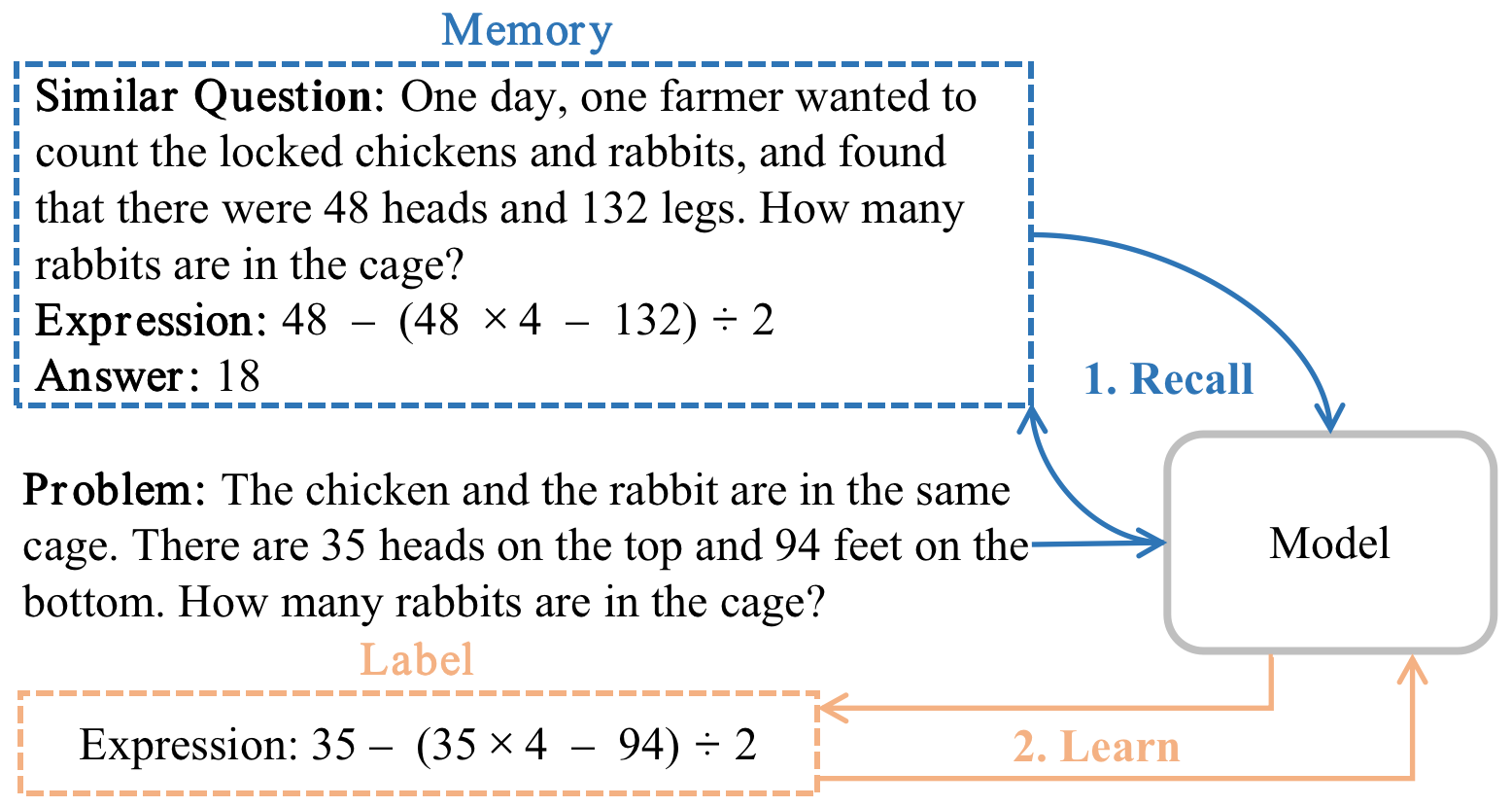In this article, we tackle the math word problem, namely, automatically answering a mathematical problem according to its textual description. Although recent methods have demonstrated their promising results, most of these methods are based on template-based generation scheme which results in limited generalization capability. To this end, we propose a novel human-like analogical learning method in a recall and learn manner. Our proposed framework is composed of modules of memory, representation, analogy, and reasoning, which are designed to make a new exercise by referring to the exercises learned in the past. Specifically, given a math word problem, the model first retrieves similar questions by a memory module and then encodes the unsolved problem and each retrieved question using a representation module. Moreover, to solve the problem in a way of analogy, an analogy module and a reasoning module with a copy mechanism are proposed to model the interrelationship between the problem and each retrieved question. Extensive experiments on two well-known datasets show the superiority of our proposed algorithm as compared to other state-of-the-art competitors from both overall performance comparison and micro-scope studies.
翻译:在本篇文章中,我们处理数学词问题,即根据文字描述自动回答数学问题。虽然最近的方法显示其有希望的结果,但大多数这些方法都基于基于模板的生成方法,其结果只有有限的概括能力。为此,我们提议以回顾和学习的方式采用新的人类类比学习方法。我们提议的框架由记忆、表述、类比和推理等模块组成,这些模块的设计是为了根据过去所学的练习进行新的练习。具体地说,鉴于数学词问题,模型首先通过一个记忆模块检索类似问题,然后用一个演示模块编码未解的问题和每个检索的问题。此外,为了以类比的方式解决问题,我们提议了一个类比模块和一个带有复制机制的推理模块,以模拟问题和每个检索的问题之间的相互关系。关于两个众所周知的数据集的广泛实验显示,我们拟议的算法与其他最先进的竞争者相比,在总体业绩比较和微观范围研究中都具有优势。

